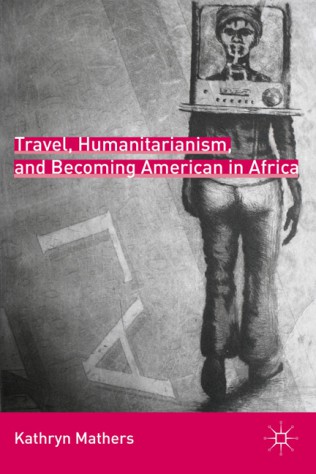The New York Times recently reported the collapse of Madonna’s $15 million project to build a school for poor girls in Malawi, where she has adopted two children. Mismanagement and cost overruns by Madonna’s charitable organization led to the project’s failure, but its merits were questioned earlier, when her philanthropy consultant suggested the money would be better spent funding educational programs through existing institutions.
Madonna was following in the footsteps of Oprah Winfrey, who spent $40 million on the Leadership Academy for Girls, which opened in South Africa in 2007. Oprah focused on creating the luxurious surroundings she lacked as a child, ignoring the local context, according to anthropologist Kathryn Mathers, who spotlights the project in the conclusion of her new book about American travelers to South Africa.
For Mathers, Madonna and Oprah are emblematic of Americans’ desire to help Africa by “saving” it, a self-focused redemption that homogenizes and disempowers Africans.
In Travel, Humanitarianism, and Becoming American in Africa (Palgrave Macmillan 2010), Mathers argues that the proverbial “white man’s burden” is alive and well in Americans, bolstered not only by pop culture figures and deeply ingrained mythologies, but—perhaps surprisingly—by travel to the continent.
Mathers, now a visiting assistant professor at Duke University, studied the experiences of Americans, mostly young, traveling to South Africa and back as study-abroad students, political tourists and vacationers between 1999 and 2002.

A white South African who earned her doctorate at the University of California at Berkeley, Mathers originally set out to evaluate the power of travel to change preconceptions about Africa. But she found that travel there did little to dislodge images of the continent as homogeneous, primitive and in need of rescue. What did change, she posits, was travelers’ conceptions of themselves as Americans, and of the responsibilities that mantle conferred.
After observing, interviewing and reading the journals of travelers—frequently fascinating source material from which she quotes liberally—Mathers argues that travelers managed their experiences abroad to fulfill expectations and recreate familiar images. Far from South Africa’s well-paved roads, they found the “real” Africa on safaris (and chillingly analogous township tours), with cameras replacing guns to capture prey. Ignorance and biases prevented them from accepting experiences that conflicted with their views of gender and social roles, and class and race limited encounters with locals. Even after their time abroad, Americans tended to talk about the continent as a single entity. For most of the travelers, Mathers argues, their “internal landscape was much more interesting than the one outside.”
What travelers did discover in Africa was America. Whether they were “working class” or “Mexican-American” at home, they were “just American” abroad. They realized that they were members of a nation, one that occupied a privileged position. This awareness was heightened by 9/11, which coincided with Mathers’ fieldwork and forced Americans to question their role in the world. According to Mathers, her subjects’ awakened sense of global responsibility made them see Africa as a place to redeem themselves and rehabilitate their country’s image. “You can save yourself so much better under a tree in Africa than in an American classroom,” Mathers writes. “Africa then becomes an emptied and natural landscape on which Americans can find ways to do good.” The problem is that this orientation echoes colonial relationships and maintains a narrative of dependency.
Mathers’s study shakes assumptions that travel necessarily changes rather than reinforces preconceived views about a place. She highlights a paradox that travelers often confront: searching for an “authentic” experience abroad and finding one that is constructed to match expectations. The book reminds us that many of the barriers that stand between travelers and truly genuine experiences are erected in their own minds.
Mathers’ examination of the motivations behind humanitarianism is her most important point, but also her least well-founded. She shows that many travelers felt a responsibility to help Africa, albeit as a generalized entity and without necessarily considering the structural causes behind disparities. However, she does not prove that they were driven by the need to reclaim a newly discovered national identity, rather than genuine compassion. Nor does her cynicism about this sense of global responsibility appear warranted, at least by her research. Mathers points out that many travelers were inspired to redirect their careers toward making a contribution to Africa. Not having trailed her subjects in their humanitarian pursuits or considered others inspired by similar experiences, she gives no reason to believe that they would follow Oprah’s example.
Surely, considering oneself a savior reinforces inequality and undermines local people and organizations. This danger begs the question of how to channel humanitarian urges toward constructive ends. But the fact that travel gave rise to a desire to help is a laudable outcome.
Although Mathers does unravel the experiences of travelers from different ethnic and class backgrounds, she gives less weight to the effect of time spent abroad. Some of her subjects spent a semester in South Africa, while others visited for 10 days. The length of time in the country may greatly affect the extent to which travelers come to understand it.
A strength of the book is Mathers’ perceptive ethnographies of the people she worked with, including in-depth profiles of three young women as they questioned their identities abroad. At times, however, her characterizations belie her objectivity, with descriptions like “typical fraternity boys” and “classic Californian surfer dude.” Mathers admits that she was angered by what she saw as the naiveté and ignorance of many Americans in South Africa. However, as a well-educated native, she was perfectly positioned to perceive ignorance. Although she includes the requisite disclaimers, Mathers can’t help but frame her research within her own preconceptions and identity.
“Ultimately, with the best intentions and even at times a critical gaze, Americans find too much of home/America while traveling in South Africa,” Mathers writes. It is the dilemma as much of anthropology as of travel: wherever you go, you can’t leave yourself at home.
Read Ethical Traveler's Reprint Policy.
